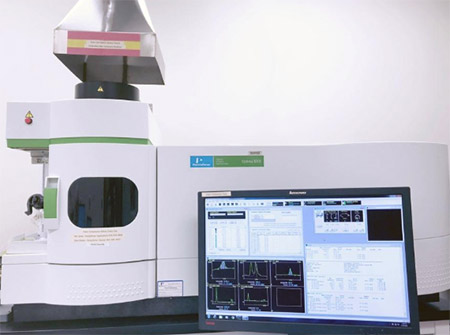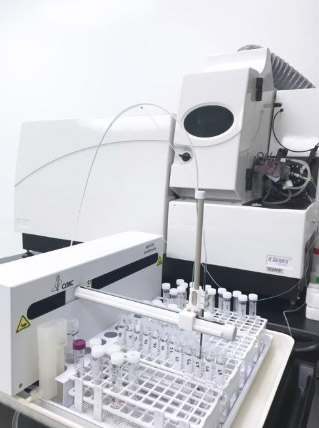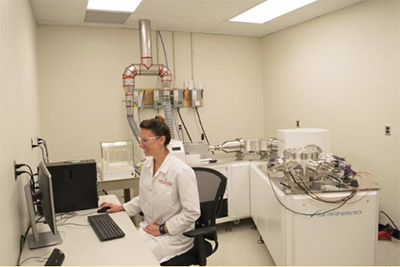The Plasma Chemistry Laboratory provides high-precision elemental analyses of environmental, biological, geological, and archaeological materials using inductively coupled plasma (ICP) technology. Quantitative and qualitative elemental analyses are available using ICP mass spectrometry (ICP-MS) and optical emission spectrometry (ICP-OES). In 2016, the Plasma Chemistry Laboratory expanded its analytical capabilities to include a multicollector ICP-MS (MC-ICP-MS), dedicated to isotope ratios of radiogenic species such as lead and strontium. In addition to ICP technology, the Plasma Chemistry Laboratory offers direct mercury analysis by thermal decomposition, producing fast and accurate quantitative mercury determination in liquid and solid matrices.
The laboratory provides analytical services to the University System of Georgia researchers, as well as to external academic and industrial customers. The mission of the laboratory is to provide quality analytical data to researchers and to assist in preparing university students for STEM careers.
 Sample Preparation
Sample Preparation
The Plasma Chemistry Laboratory provides sample preparation for elemental and isotopic analyses for a variety of sample matrices, and a class 100/1000 Cleanroom enables ultra-trace analysis sample preparation.
 ICP-OES
ICP-OES
The Inductively Coupled Plasma Optical Emission Spectrophotometer (ICP-OES) is dedicated to analyzing major elements and some trace elements in sediments, waters, plants and other biological matrices. The laboratory utilizes a Perkin Elmer 8300 ICP-OES, which allows measurement of a wide range of concentrations within the same run. ICP-OES analysis is best suited for high-throughput analysis of samples where multiple-elemental analysis is necessary and analyte content is expected to be within 10 ppb to 1 percent.
Typical applications of ICP-OES include: riverine and lacustrine elemental analysis, waste water and sludge analysis, analysis of fertilizers and composts, foodstuffs, pharma, archeological sample analyses, soils and sediments analysis, and analysis of metalloproteins.
 ICP-MS
ICP-MS
The Plasma Chemistry Laboratory operates two Thermo X-Series II and an Agilent 7500 Series ICP-MS. These instruments are dedicated to high-precision elemental analysis of low-concentration and trace-elements in a variety of samples. The Thermo X-Series II ICP-MS provide collision cell technology (CCT) and kinetic energy discrimination (KED) analysis, for improved analytical measurement when polyatomic interferences are of concern. These technologies help to minimize the presence of interferents that complicate the analysis of Al, K, V, Cr, Mn, Fe, As, and Se.
Typical applications of ICP-MS include: organometallics research, rare earth analysis of geologic and environmental samples, heavy metals analysis, toxicology, forensics, provenance studies, pharmaceutical research, nanoparticle research, contaminants in environmental systems, protein/enzyme metal interactions.
 Mercury Analysis
Mercury Analysis
A Milestone DMA-80 is used for quick, quantitative mercury analysis in liquids and solids. This method requires minimal sample preparation, short analysis times, and high throughput. Detection limits range from 0.03 ng to 1500 ng mercury.
Typical applications include: fish, soil, sediment and sludge, hazardous materials, chemicals, polymers, paints, coatings, waters, and foodstuffs.
 MC-ICP-MS
MC-ICP-MS
The multi-collector lab at CAIS was installed during the 2015-2016 academic year and is dedicated to measurement of isotopic ratios in a variety of elemental systems. We house a nu-Plasma II high resolution multi-collector mass spectrometer fitted with 15 faraday collectors and 5 ion counters, coupled to a dry desolvating system which allows for increased sensitivity for measuring very dilute solutions.
